



For Sudheer Rajbhar, his experimental luxury brand, Chamar, is more than just a business. He attempts to accord respectability to the word ‘chamar’ (untouchable).
The quest led the art graduate to the world of design, leather artisans, cobblers and, ultimately, luxury. In 2017, he established the new-medium brand Chamar and a collaborative design studio that works with artisans to create a sumptuous range of luxury bags which sell in India and Europe.
Chamar Studio does more than just make bags — it upcycles waste and supports Dalit communities to make a space for them in the world of Indian luxury.
“I wanted it to be a sustainable brand so I eschewed leather in favour of recycled thin rubber tyre sheets as material. The idea was to be earth-friendly and move away from animal abuse. The idea was also to break the myth that Dalits and animal slaughter go hand-in-hand.”
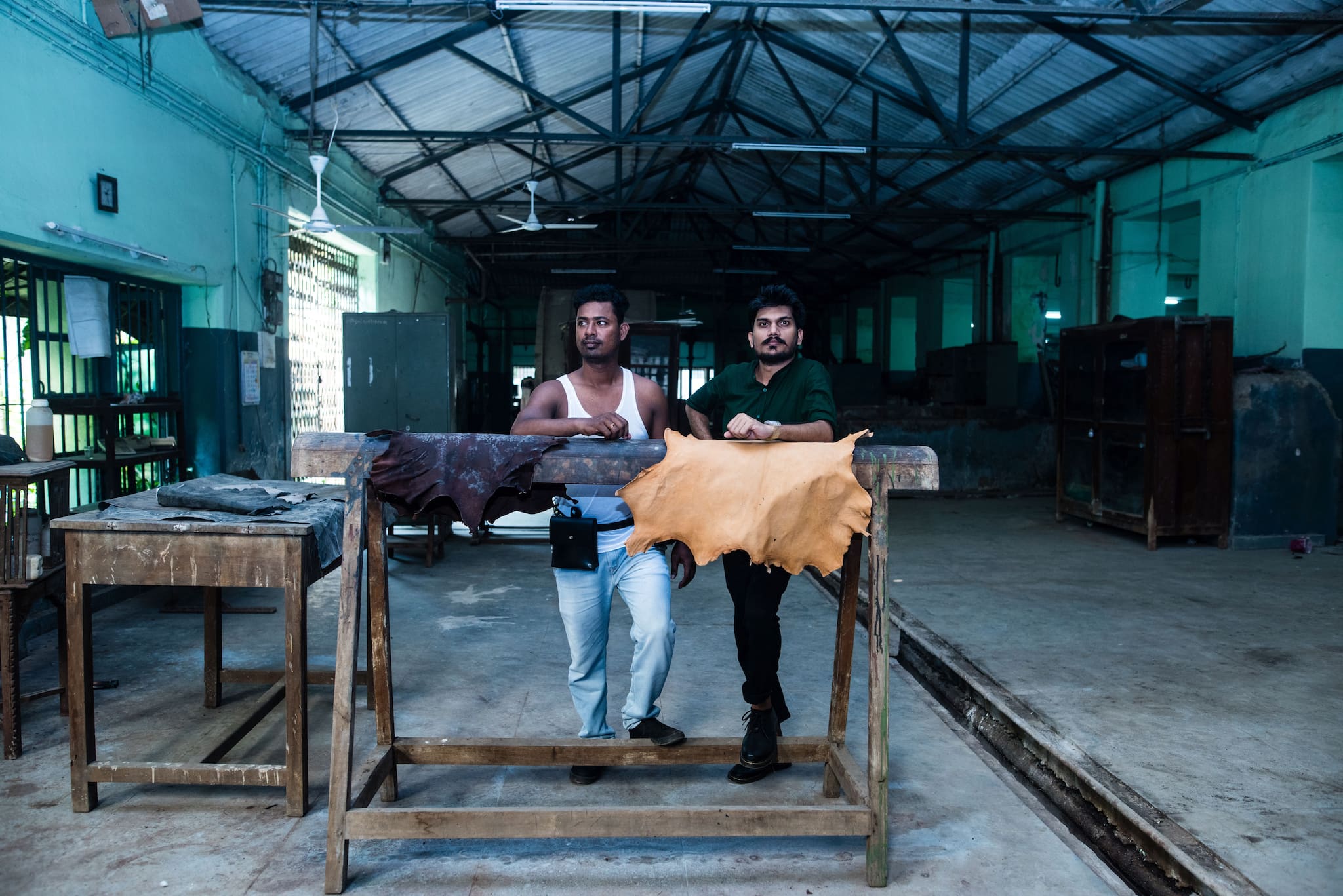 Sudheer Rajbhar with an artisan from Dharavi.
Sudheer Rajbhar with an artisan from Dharavi.The three-year-old accessories brand, which is rooted in social reality, hopes to position Indian craftsmanship and artisans as capable of creating a world-class luxury brand, by melding sustainability with Dalit pride.
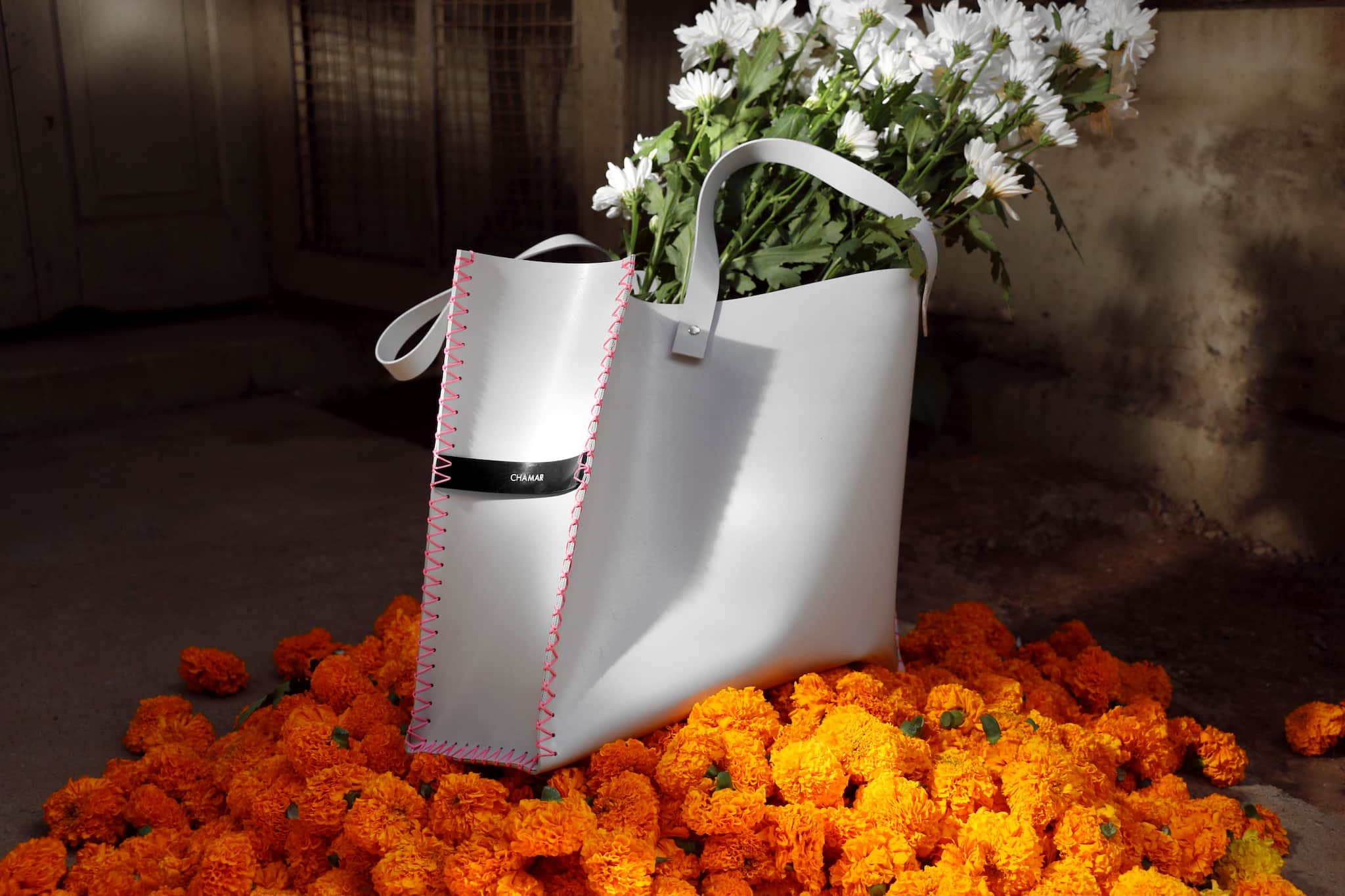
Rajbhar collaborates with 13 artisans and craftsmen, many of whom live in Dharavi (though a few are in remote villages of Maharashtra). The buzzing slum, a microcosm of several businesses, has suffered an immense setback due to the spread of coronavirus infection and was turned into a major containment zone by the Brihanmumbai Municipal Corporation (BMC).

He set up a Ketto fundraiser in end-April since “many of them did not even have enough food to eat”, and has managed to raise Rs 3.2 lakh in the last two months for his artisans. Varun Sheth, Co-founder & CEO of Ketto, who set up and ran the fundraiser, says, “We have raised over Rs 100 crore for causes such as food and hunger, sending migrant workers home, supporting small businesses and medical relief. For Chamar, the strategy was driven by their team via social media and digital communication channels. We have focused attention on raising funds for ‘Make in India’ brands and raised Rs 10 crore in the last 8 years. Crowdfunding is an important step for SME brands to test out the market, get early feedback and now raise relief funds.”
 Varun Sheth.
Varun Sheth.For a boutique brand such as Chamar, says Rajbhar, it was a matter of survival of its artisans.
The originsBefore the lockdown, Rajbhar’s contemporary bags stood cheek-by-jowl with global brands in avant-garde fashion and concept stores such as Le Mill in Mumbai, Kochi’s Pepper House and Indian Goods House in Frankfurt.
The designer-entrepreneur began his career as an assistant to artists, a job he quickly grew disillusioned with. “I found that most artists treat their assistants as cheap labour.”
 So, in 2017, he set up a collaborative studio with a few artisans who traditionally worked in the leather and tanning industries. “They are spoken of disparagingly. I decided to call my brand, Chamar, to reclaim the word and accord its attributes such as skill and artistry. Also, the 2015 beef ban had hit the artisans hard and they were looking for alternatives.”
So, in 2017, he set up a collaborative studio with a few artisans who traditionally worked in the leather and tanning industries. “They are spoken of disparagingly. I decided to call my brand, Chamar, to reclaim the word and accord its attributes such as skill and artistry. Also, the 2015 beef ban had hit the artisans hard and they were looking for alternatives.”
The collaboration took him to the home of artisans in Mumbai’s slums, and their clusters across Maharashtra. “I had to understand where they came from. They work with some of the best brands in the world, but are treated as unequal, paid badly and discriminated against.”
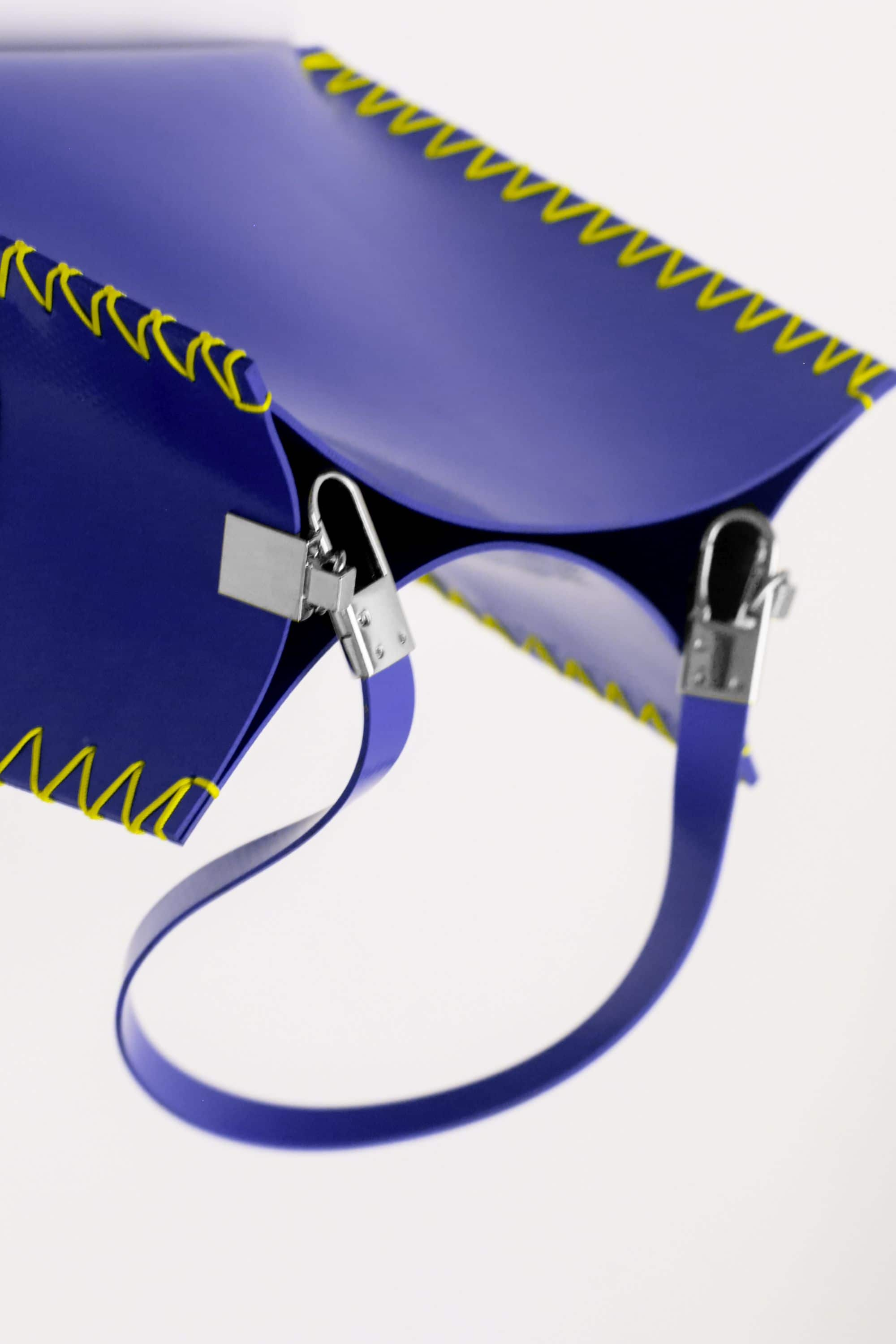
Also, his dream was to confer a new meaning to Indian luxury, much like his young peers running luxury startups in the country. “India has a heritage of craftsmanship that can compare to the best in the world, but it hasn’t been able to leverage it because of the way we treat our artisans. We can be leaders in luxury, but most artisans are involved in mass production. I wanted to make super-quality accessories and create a boutique brand, which would work in collaboration with the artisans.”
Going the sustainable wayRajbhar re-trained the artisans to apply their craftsmanship to new materials such as rubber from recycled tyres, cotton, latex and canvas, to create handbags, belts and other accessories.
It took a bit of convincing for the artisans to believe that the craft their ancestors practised down centuries, using leather, can also be used to create products with recycled material such as tyre or rubber tubes. “They did not think it was possible. But crafting bags or accessories from leather is a lengthy, toxic process. This is far simpler: all you have to do is convert the material into sheets and then stitch a bag according to the design. Besides, the piece you create can truly be an heirloom, lasting for up to 30 years! Even if you pay a higher value, it is worth the investment.”
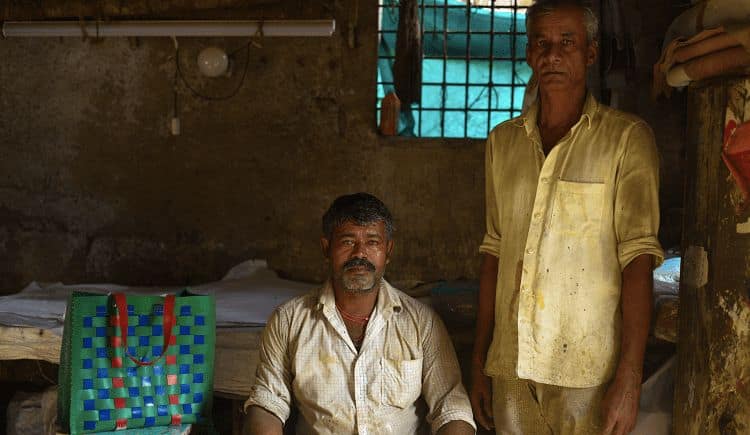
Besides, all too often Dalits are associated with animal slaughter, a stereotype he sought to break. The cult of individuality is the Holy Grail of contemporary fashion and the designer-entrepreneur was quite clear that Chamar would be unconventional, not just in the social messaging but in its design. “Indian design tends to be flamboyant, even garish because we associate luxury with embroidery, gold and bling. That is not the road I did not want to take.”
During the lockdown, Rajbhar has worked to acquire the CHAMAR trademark and create an e-commerce site to sell his brand.
The designsChamar has three collections on sale: Bombay Black (inspired by how Mumbai appears from up above, like a landscape of black roofs due to the black plastic draped over the slum houses), Blue Collar (references the blue-coloured uniform worn by shoe-shine boys on railway stations), and Black Fortune (from the daily objects he found in Dharavi). “I have reintegrated conceptual thinking into what is often described as folk art, industrial art or handicrafts.”
The visionRajbhar set up Chamar Foundation to provide artisans with a space of their own, raw materials and tools.
Last year, for its project The Reclaimed Tote, the Foundation invited 66 designers, including the likes of Sabyasachi Mukherjee and Tarun Tahiliani, to re-imagine a canvas piece of 14 x11 inches into a tote that would use discarded textile and fabric scraps from their studio.
 Kunal Kapoor, co-founder, Ketto.
Kunal Kapoor, co-founder, Ketto.The collection of repurposed rubber bags, handcrafted by 10 artisans, was sold at Ensemble in Mumbai and included embroidered totes by Payal Singhal and Mukherjee, as well as texture play by Akaaro, Gaurav Gupta and 11.11/Eleven Eleven.
Rajbhar hopes to work with Maharashtra government to spruce up an old Mumbai institute, The Government Leather Working, which teaches the art of making products using leather. “It is in very bad shape. There are only four students, the roof leaks in the monsoon. But it has great potential. If we spruce it up, create a good curriculum and teach how to design using new eco-friendly materials, it will attract students, particularly from the communities that have traditionally worked in tanneries and leather businesses.”
He also hopes to open retail stores, where he can invite cobblers to create a range of shoes or even repair them within the confines of a luxury space. “Most cobblers are forced to sell cheap Chinese shoes in their roadside shops to earn some money. Their skills can be put to better use.”
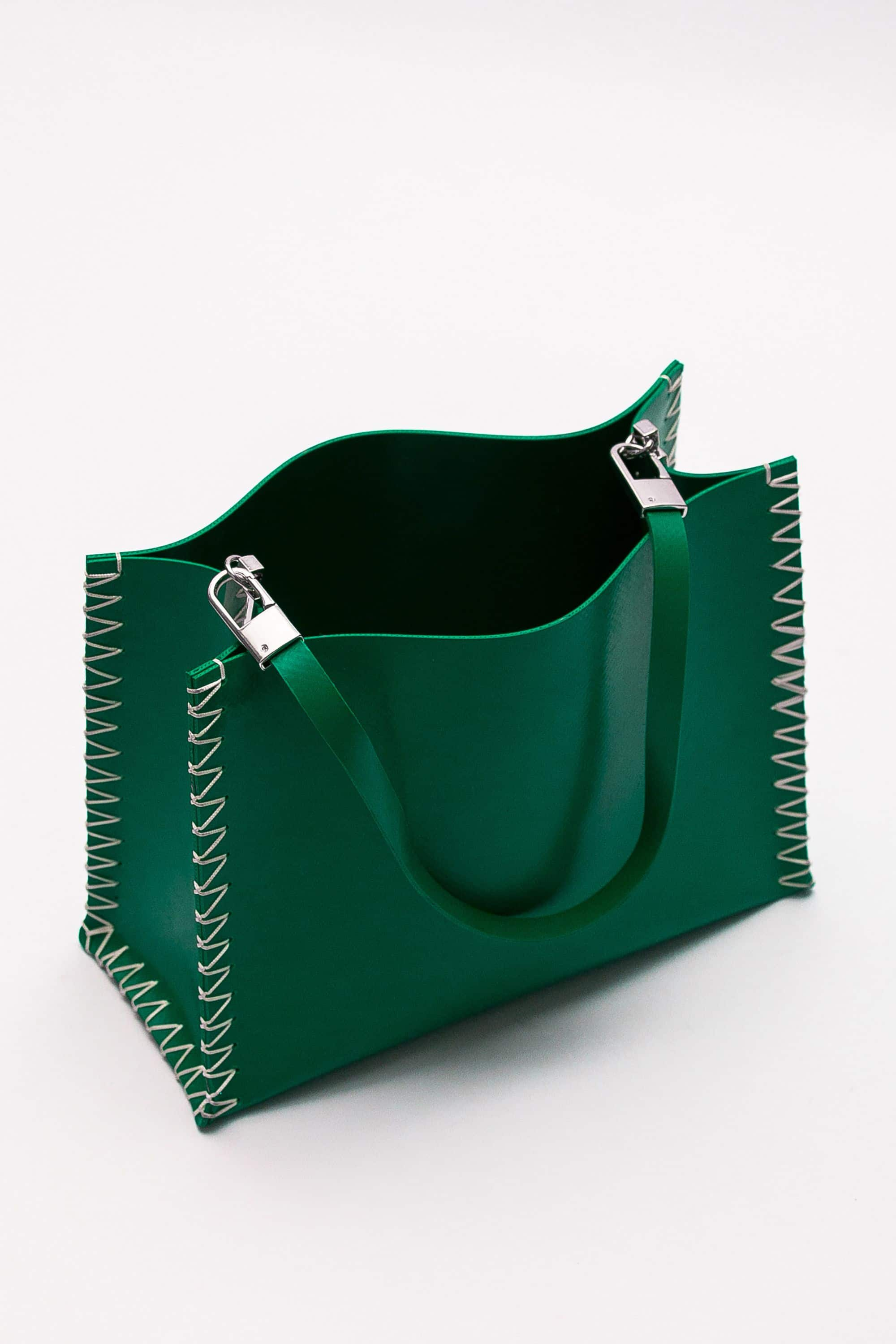
Among the inspiring stories that have emerged from the studio: Sachin Bhimsakhare, a designer who began collaborating with the studio four years ago, works as a sweeper supervisor with BMC in the morning and pursues his passion for making bags in the latter half of the day.
Chamar Studio does not have a fixed studio space. The idea is rather nomadic: artisans can work from their homes, their small shops or even the railway station to create bags and accessories based on Rajbhar’s slick, sophisticated design.
Deepali Nandwani is a journalist who keeps a close watch on the world of luxury.Discover the latest Business News, Sensex, and Nifty updates. Obtain Personal Finance insights, tax queries, and expert opinions on Moneycontrol or download the Moneycontrol App to stay updated!
Find the best of Al News in one place, specially curated for you every weekend.
Stay on top of the latest tech trends and biggest startup news.